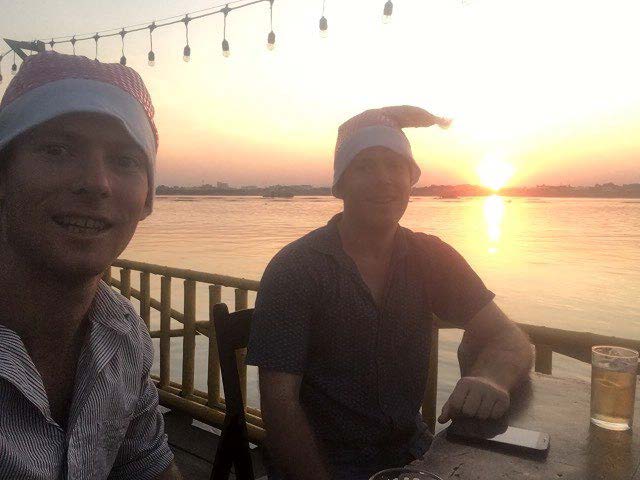Lessons from Laos
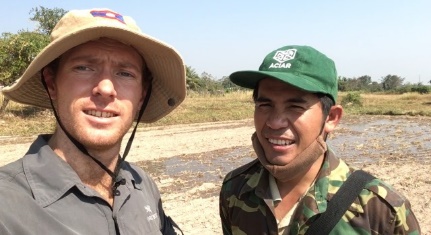 Why Lao PDR?
Why Lao PDR?
I found myself in Laos the same way I find myself in many situations – throwing myself into the most daunting and challenging option available because saying “yes” to the opportunity of being a ‘weeds management advisor in Laos’ is easier than justifying why not. Straight out of an Ag degree I admittedly knew very little about rice, weeds or where Laos was, but armed with enthusiasm, a can-do attitude and high calibre Crawford Fund mentor Deirdre Lemerle and Laos legend Leigh Vial I was set for an adventure.
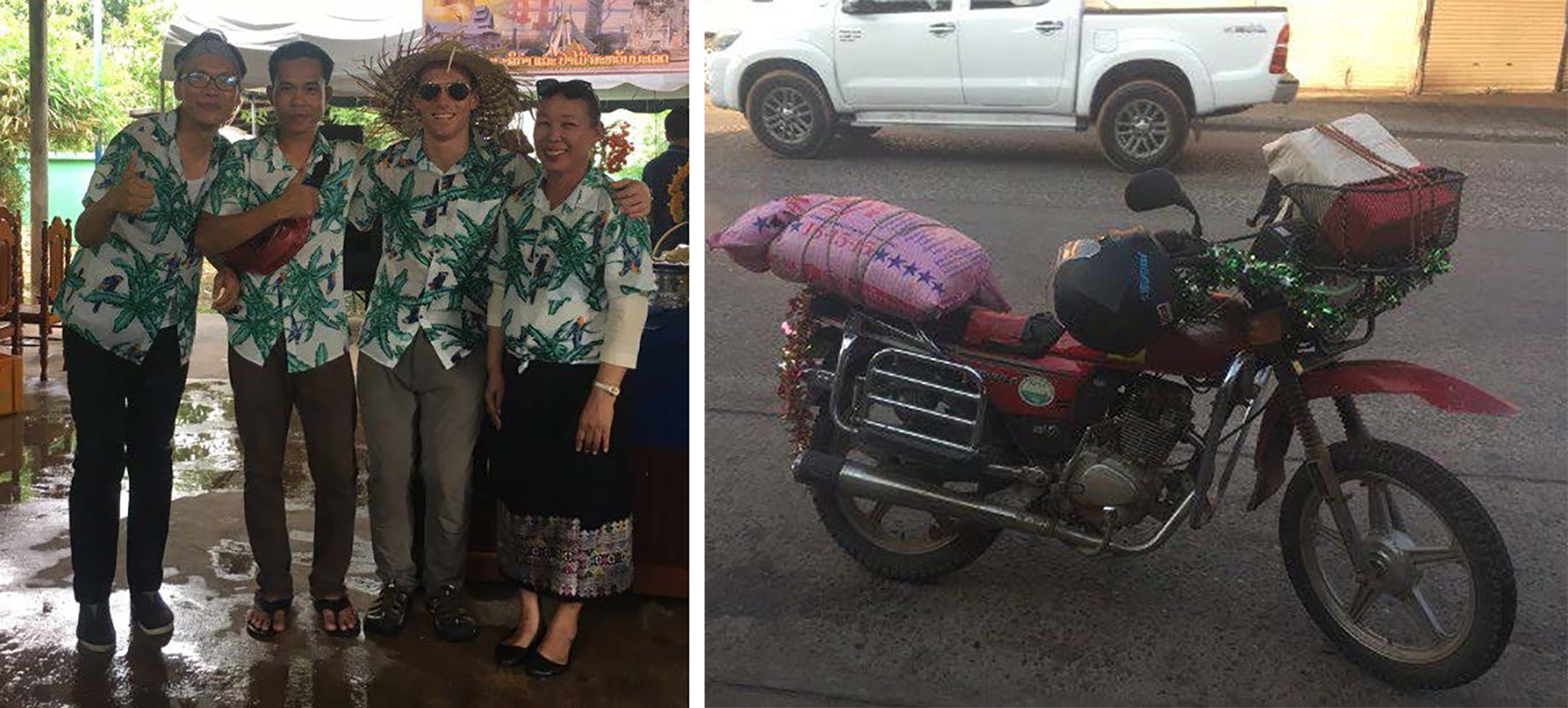
Assigned to the forgotten city of Laos, ‘sleepy Savannakhet’ is known more as the rice bowl of the nation rather than a tourist mecca. I arrived in the hottest part of the year, just before Pi Mai (Laos new year celebrations lasting a week) and I’m not sure who was less prepared for the other – Savannakhet or me, however I very quickly made friends over more cold beverages than mutual language. As my Lao developed, I soon realised lack of mutual language was only scratching the surface of issues I’d face when working for the state, but I headed over with one goal; to learn patience. In hindsight I couldn’t think of a more appropriate setting!
So what did I do to assist farmers of Laos?
Savannakhet small holder farmers face no shortage of challenges – hard setting, nutrient depleted acrisol sands that are both drought and flood prone, decreasing work force as youth migrate to Thailand or Vientiane chasing factory work, changing climate and lack of access to knowledge and finance. Yet despite the severe food insecurity, poverty and malnourishment, they wear a smile each day. Some farmers have transitioned from transplanting to direct seeding rice due to the labour and financial savings associated. But with this comes weeds, severely reducing yield and increasing workload of women. My job was simple, to come up with a solution to reduce the yield loss and labour associate with weeding (done by women).
The answer: no not herbicides- they’re not permitted. Inter-row cultivation behind a hand tractor failed miserably, as did cutting of the rice and weeds with a whipper snipper (the weeds came back bigger!). So the thinking cap was donned and the solution: a inter-row ground engaging implement on a whipper snipper to pulverise weeds AND a PVC cover for those strict OHS regulations!
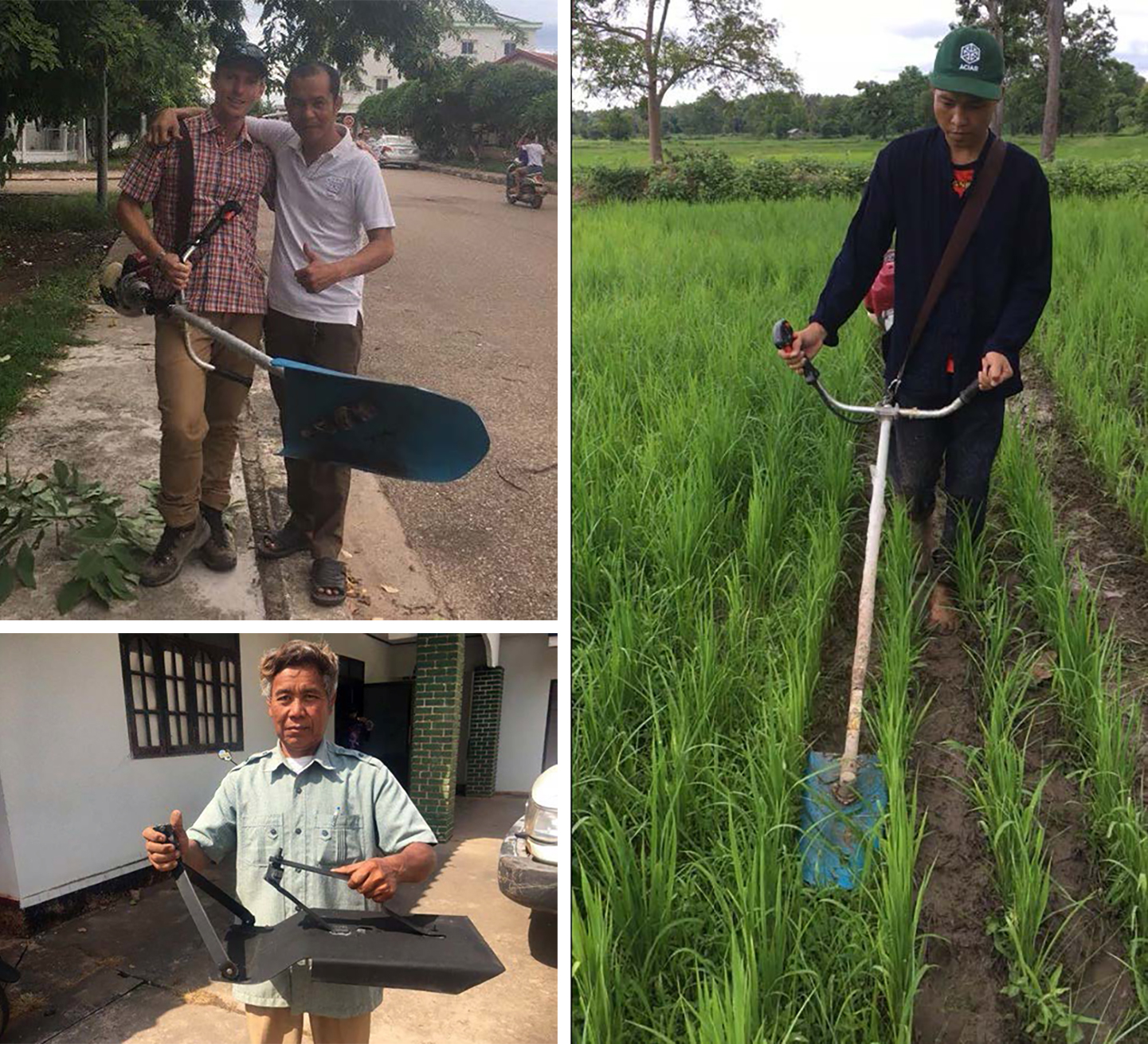
What did farmers think? They love it – except one fellow “I don’t like. Without machine my wife does weeding, with machine I have to work but I like sleeping better”. This sums up ‘who does what’ in Laos VERY accurately.
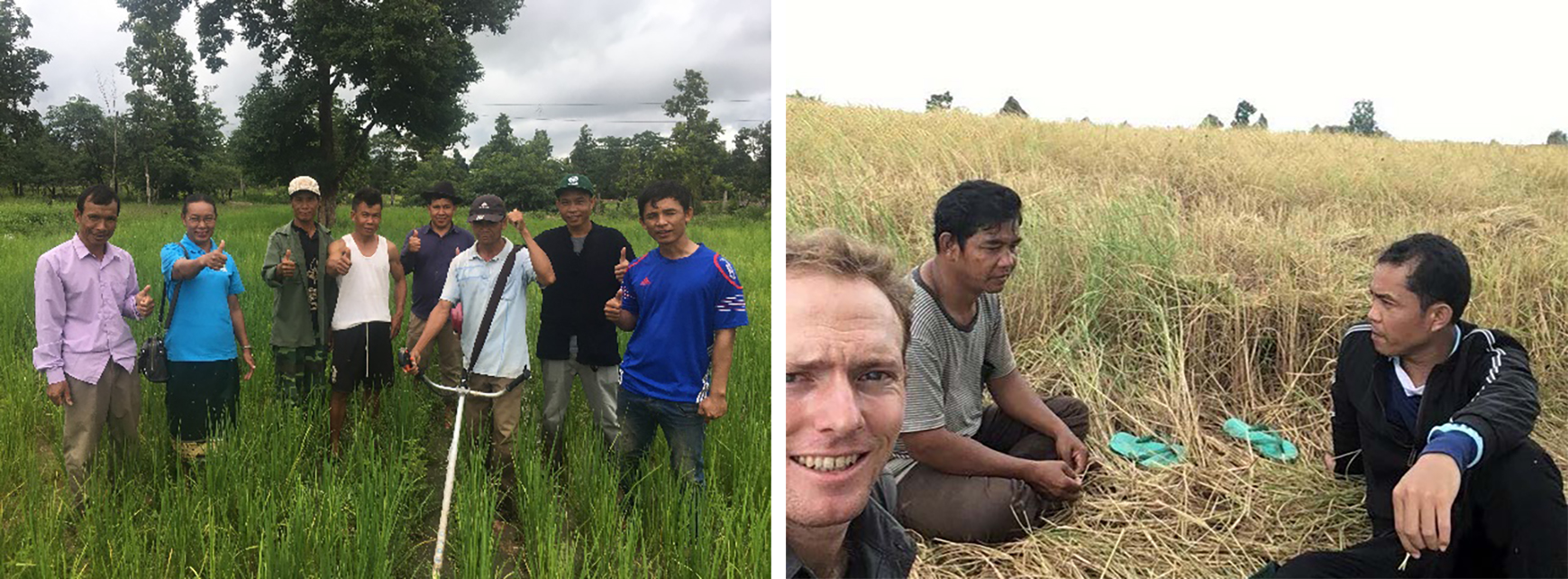
The creation of YouTube video interviews with farmers who have succeeded with direct seeded rice was well received by farmers with an increasing number owning smart phones. Using social media to convey messages to farmers will play an increasingly important role in extension in developing countries. I was quite surprised with the amount of engagement I achieved on a Lao Facebook profile to convey agricultural messages – likely mostly as entertainment to see a foreigner attempting Lao, but engagement none the less!
What did I learn from the Lao?
Life is as complex as you make it, depending on where you focus your energy and thinking will determine your level of happiness. The Lao are always ‘mouan’ (happy). Some tactics I learnt to be ‘mouan’ whilst on assignment and take into future life:
Don’t expect anything from anyone, then you can’t be disappointed. Worry only about what sits in your lap, if you can’t control it, forget about it and get on with what you can control. E.g. Cow/drought/floods ruining experiments!
In Australia we often confuse our desires with actually needs which we take for granted. Maslow taught us that there are four physiological needs; food, water, warmth rest. Anything more is a bonus, cherish it and enjoy the little things in life. I’d argue the Lao have narrowed Maslow’s list to three and have life’s needs worked out; sticky rice, beerlao and a friend to share it with – ‘mouan lai’!
Agricultural development –a field where creativity, patience and flexibility are just as valuable as any degree. Whilst a PhD to your name will gain you much respect, to maximise success in a project you need boots on the ground. Learning the language and understanding the culture will gain respect, achieve buy-in and will lead to more sustainable research and extension outcomes.
What does the future hold?
My year in Laos not only gave me a taste of international development, it gave me the opportunity to slow down and reflect on the impact I wish to have – improving small holder farmer livelihoods and ensuring food security for all. To get there – heading down the dreaded PhD track, I said I like a challenge and a sucker for punishment!
See you in Savannakhet – home of the most relaxing sunsets and the coldest Beerlao in Laos!
